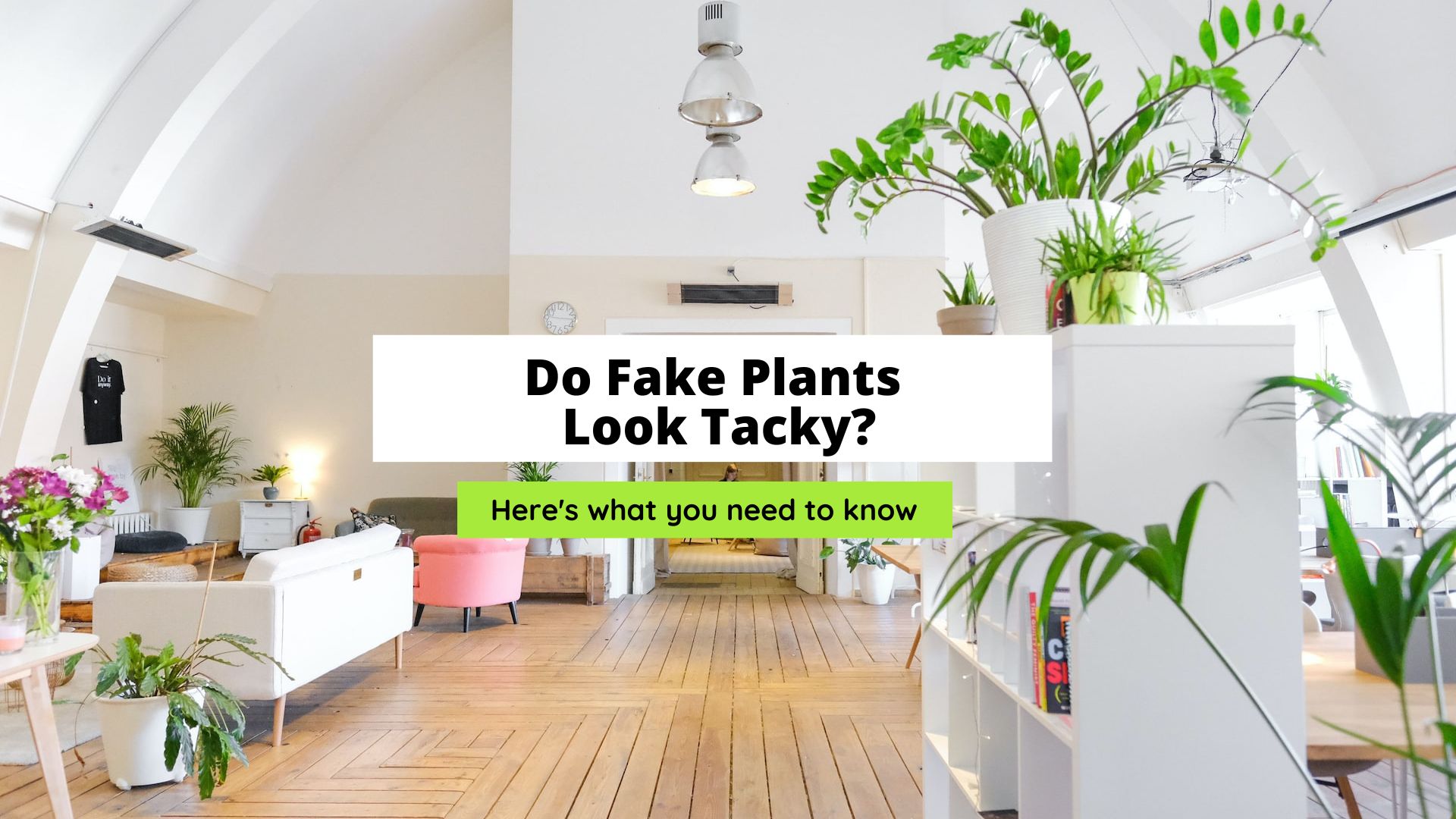For decades, the debate has raged on: are fake plants tacky, or can they be a stylish addition to a home? The mere mention of artificial plants might conjure images of dusty, plastic ferns from the 1970s. But the reality is, the world of faux greenery has evolved dramatically. With advancements in materials and design, today's fake plants can be deceptively realistic, offering a low-maintenance alternative to the real deal.
The perception of artificial plants as inherently tacky likely stems from their early iterations. Think back to the plastic flowers and stiff, unconvincing greenery that populated many homes and offices. These early attempts at recreating nature often fell short, resulting in a reputation that's been hard to shake. However, just like any design trend, faux plants have undergone a significant transformation.
The modern homeowner is presented with an array of incredibly lifelike options, from delicate succulents to towering fiddle leaf figs. These faux botanicals are crafted from high-quality materials, boasting intricate details and vibrant colors that mimic their living counterparts. This realism plays a crucial role in shedding the "tacky" label and elevating artificial plants to a sophisticated design element.
But the appeal of fake plants extends beyond their aesthetics. For many, they present a practical solution to the challenges of keeping real plants alive. Whether you lack a green thumb, struggle with low light conditions, or simply crave a hassle-free approach to greenery, faux plants offer undeniable convenience. They require no watering, fertilizing, or repotting, making them ideal for busy individuals, frequent travelers, or anyone who wants to enjoy the beauty of nature without the upkeep.
However, the key to successfully incorporating fake plants into your decor lies in choosing wisely and styling strategically. Opting for high-quality pieces that closely resemble their natural counterparts is essential. Additionally, consider the scale and placement of your faux greenery. Just like with real plants, creating a balanced and harmonious look is key.
While the perception of fake plants as tacky might linger in some circles, the reality is far more nuanced. When chosen with care and styled thoughtfully, artificial plants can inject vibrancy, texture, and a touch of nature into any space without the maintenance demands of their living counterparts. So, the next time you're looking to enhance your home décor, don't dismiss the potential of faux greenery. Embrace the evolution of artificial plants and discover a world of possibilities for creating a stylish and inviting home, sans the green thumb.
Advantages and Disadvantages of Faux Plants
| Advantages | Disadvantages |
|---|---|
| Low-maintenance | Lack of natural growth and change |
| Long-lasting and durable | Can appear artificial if not chosen carefully |
| Versatile for various light conditions | May fade in direct sunlight over time |
Best Practices for Styling with Faux Plants
Here are some tips for incorporating artificial plants into your home without veering into tacky territory:
- Invest in quality: Choose high-quality pieces with realistic details and textures. Avoid overly shiny or plastic-looking plants.
- Mix and match: Don't be afraid to combine different types of faux plants to create visual interest. Group them together as you would with real plants.
- Use strategic placement: Consider the scale and proportion of your plants in relation to your furniture and the overall space.
- Add natural elements: Combine faux plants with natural elements like woven baskets, ceramic pots, or wooden stands to enhance their authenticity.
- Keep them clean: Just like real plants, faux plants can collect dust. Regularly wipe them down or use a hairdryer on a cool setting to keep them looking their best.
Frequently Asked Questions About Faux Plants
Q: Are there any benefits to having fake plants?
A: Yes, many! They're low-maintenance, long-lasting, and allergy-friendly. Plus, they can brighten up spaces with limited natural light.
Q: How can I make fake plants look more realistic?
A: Choose high-quality plants with natural-looking textures and colors. Place them in attractive pots and consider adding decorative moss or stones around the base.
Q: Can I use fake plants outdoors?
A: While some artificial plants are designed for outdoor use, check the manufacturer's instructions. Be aware that they may fade or deteriorate faster when exposed to the elements.
Q: Where can I buy realistic-looking fake plants?
A: Many home décor stores, online retailers, and even craft stores now offer a wide selection of high-quality faux plants.
Q: What are some popular types of faux plants to choose from?
A: Some popular options include succulents, snake plants, fiddle leaf figs, monstera plants, and palms.
Conclusion
The world of interior design has come a long way, and the stigma surrounding faux plants is slowly fading. No longer relegated to the realm of tacky décor, artificial plants, when chosen wisely and styled thoughtfully, can be a stylish and practical addition to any home. They offer the beauty and tranquility of nature without the demands of a green thumb. Embrace the versatility and convenience of faux greenery and elevate your home décor with these low-maintenance botanical wonders.
are fake plants tacky - The Brass Coq
are fake plants tacky - The Brass Coq
are fake plants tacky - The Brass Coq
are fake plants tacky - The Brass Coq
are fake plants tacky - The Brass Coq
are fake plants tacky - The Brass Coq
are fake plants tacky - The Brass Coq
are fake plants tacky - The Brass Coq
are fake plants tacky - The Brass Coq
are fake plants tacky - The Brass Coq
are fake plants tacky - The Brass Coq
are fake plants tacky - The Brass Coq
are fake plants tacky - The Brass Coq
are fake plants tacky - The Brass Coq
are fake plants tacky - The Brass Coq













